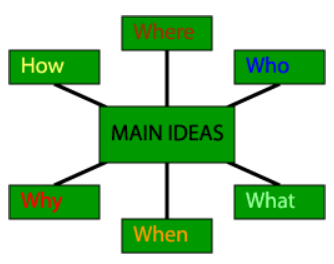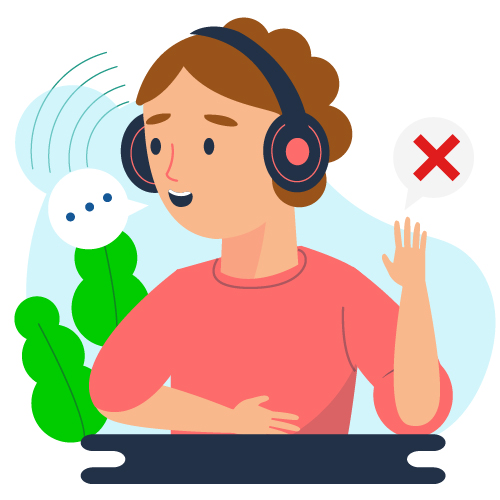
How to Improve your IELTS Reading Score
Improve your IELTS Reading Score. It gets pretty exhausting attempting to further develop your perusing ordinary utilizing practice tests – perusing the news is an extraordinary method for dealing with your IELTS!
Your life is as of now lovely exhausting, so we should check whether we can discover far to make it somewhat really fascinating.
The news used to be exhausting as well, yet now that Donald Trump is president, it is superior to watching an activity film!
We should investigate how you can involve the news in an organized manner throughout a significant stretch of time to further develop your understanding abilities and improve on the test (these tips apply to books and other internet-based articles, too – in addition to the news).
These are the 6 essential strides for IELTS perusing that you will be educated about in each course and will assist you with perusing quicker!
Consider the main example of perusing without fail. These are the structure blocks. Make certain to stay away from the slip-ups that most understudies make on composition by pursuing my select IELTS.
How about we begin!
Stage 1: READ THE TITLE (5 Seconds)
Try not to spend a lot of energy here mulling over everything. Just read it, find out about the thing you will learn about and begin. This is a perusing from Cambridge IELTS 12 (genuine previous IELTS question papers). For instance, let’s try with the title ‘The Risks Agriculture Faces in Developing Countries. ‘You can envision that the article will be logical, that it will discuss explicit unfortunate nations, about farming techniques and why these nations disapprove of horticulture now and again.
You ought to skim an IELTS perusing (2000 – 3000 words) in 2 – 3 minutes. The motivation behind why it must be so quick is that you believe it should stick in your momentary memory. Whenever you read the principal question, you ought to, in any case, have that unpleasant guide in your mind – you don’t believe it should blur. On the off chance that it takes more time than 3 minutes, it will begin to blur and will not be as helpful.
So how precisely do you skim?
- The subject sentence of each passage. Peruse this gradually. It is the main sentence.
- The watchwords. Peruse the remainder of the passage quicker, skipping words and subtleties and zeroing in on certain catchphrases (things and action words).
It would be ideal for you to disregard:
- Words that you don’t have the foggiest idea. There is no chance to sort them out now (ideally, it isn’t too much – in the event that it is such a large number, then you are not prepared to concentrate on IELTS yet.)
- Little subtleties like names, years, and spots – you can undoubtedly find those later!
- Little punctuation words like: is, are, of, the, a, to, and so on. Assuming you remove those from the sentence, you can, in any case, comprehend it since they have almost no significance – disregard them for the present!
You must recall that skimming is an IELTS expertise ONLY. It doesn’t make you a decent peruser – the polar opposite: it makes you an awful peruser. It aids you for the test, so you ought to work on this ability to have the option to do the IELTS perusing rapidly. The most effective way to rehearse is with training tests or by perusing the news ordinary. Work on skimming this section by zeroing in on the point sentences and watchwords (it ought to take you 2 – 3 minutes).
Stage 3: READ THE INSTRUCTIONS
This one is self-evident! Be that as it may, the more practise tests you do, the quicker you can do this on the genuine test since you will currently be comfortable with the different inquiry types.
Stage 4: READ THE QUESTION
This is likewise self-evident. Try not to peruse every one of the inquiries – you’re doing whatever it takes not to dazzle anybody with your memory. Peruse the principal question, and afterwards, you can check for the response. It will be simpler and quicker to filter, assuming you worked really hard skimming previously.
Stage 5: SCAN FOR THE ANSWER
Filter for the response simply means to peruse rapidly to track down the response. Find the catchphrase in the inquiry and search for it in the perusing. At times you will actually want to track down the catchphrase. For instance, you could see ‘absence of interest’ in the inquiry and afterwards find a similar expression ‘absence of interest’ in the perusing like a milestone to track down the response.
In any case, it is more normal for the catchphrases to be summarized. For instance, you see ‘absence of interest’ in the inquiry and afterwards find ‘a somewhat lacking homegrown market’ or ‘scarcely any individuals need to purchase. ‘The greatest error that a ton of understudies make is they either search for the watchword or direct equivalent words. Both of these are uncommon. Search for something summarized that implies exactly the same thing with very surprising words. Underline the catchphrases, yet don’t invest energy considering equivalent words. Rather follow your guide to the piece of the text where you think the response is and peruse cautiously and gradually.
For most inquiries, the responses come all together in the perusing, so that will assist you with observing the overall area where the response is.
Stage 6: WRITE ON THE ANSWER SHEET
It would be a disgrace to fail to remember this progression! Ensure that you compose on the response sheet and not on the test – you won’t get an additional chance to move your responses from the test to the response sheet! Consider the possibility that I need to do the perusing an alternate way.
This is the most effective way, as I would like to think, for most understudies to deal with their experience on the understanding test. Be that as it may, there are other ways. These are a portion of different thoughts I have heard from my previous understudies:
‘Peruse the inquiry first and afterwards skim subsequently. On the off chance that your vocab and memory are great, this can be quicker.’
‘Invest more energy skimming – around 5 minutes. Then, at that point, you realize the all-around text well and observing the answers is a lot more straightforward.’
‘Try not to peruse it by any means – simply investigate the paper of the individual close to you… ‘
Practice and sort out what direction turns out best for you!



